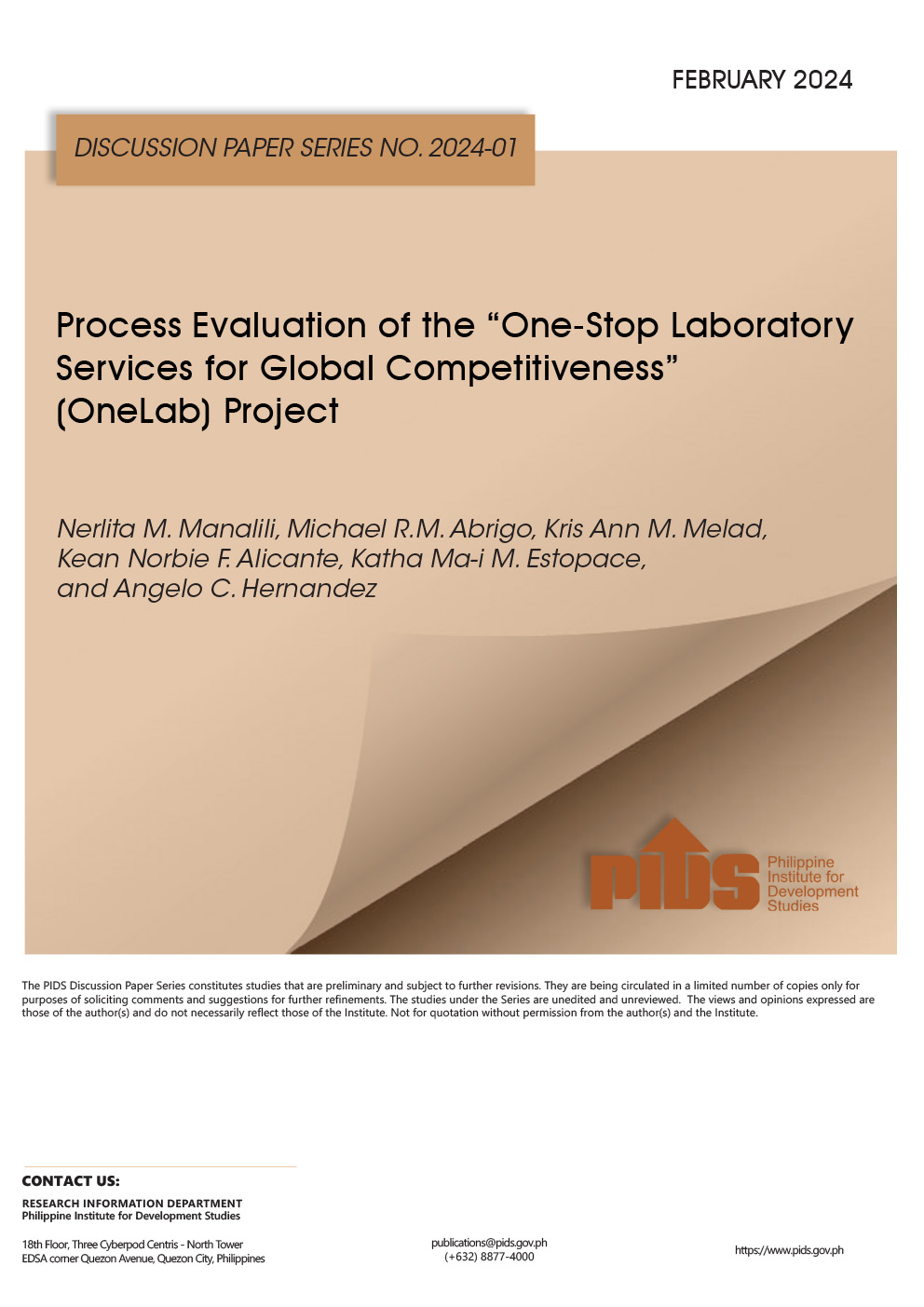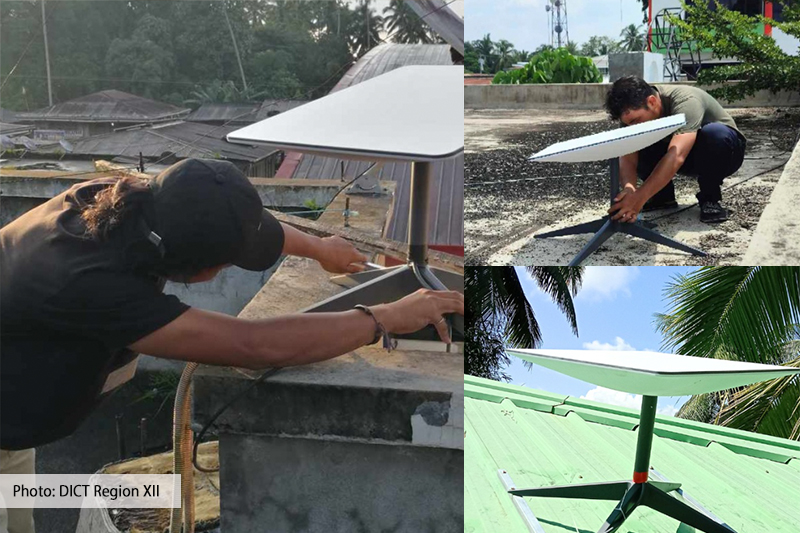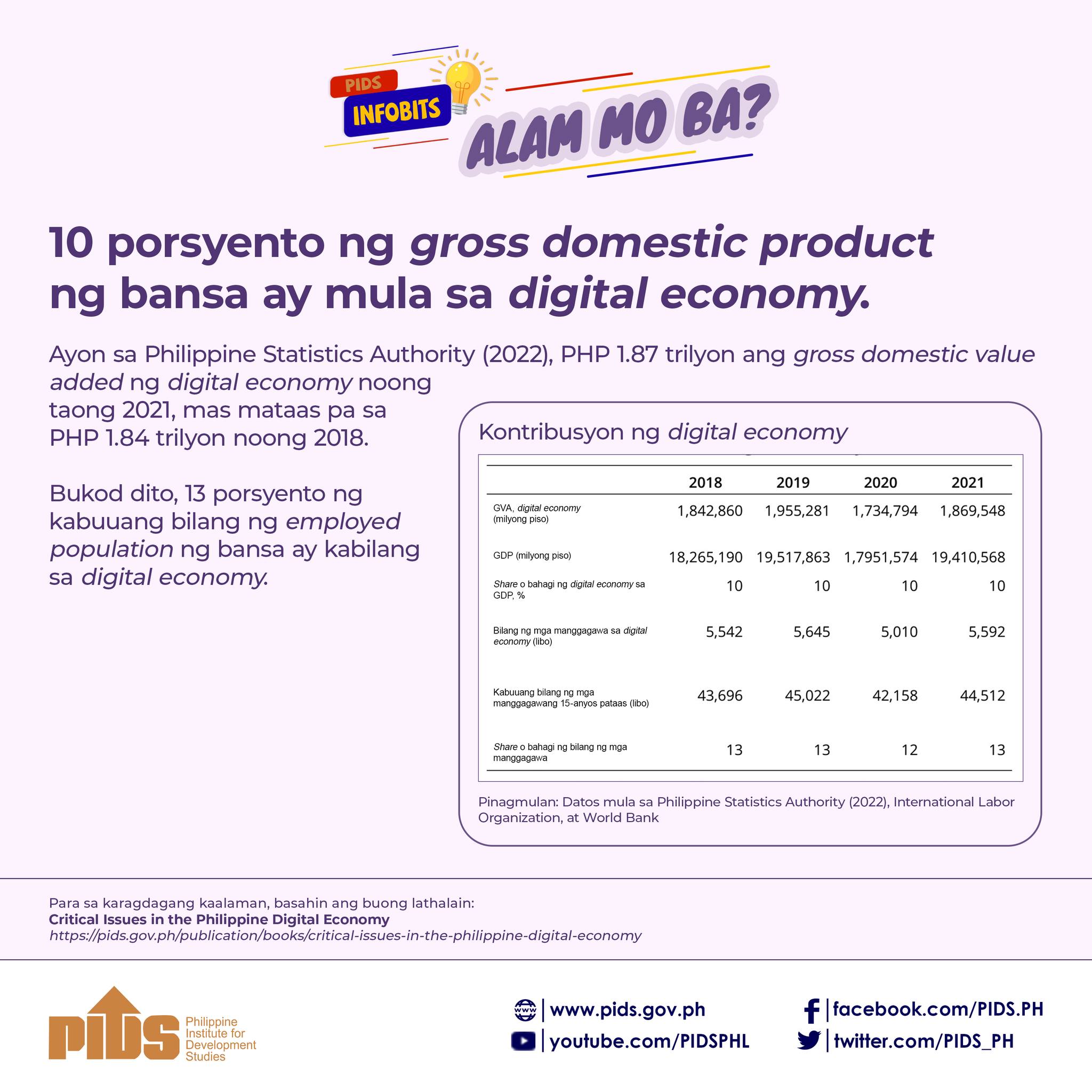RESTRICTIONS on foreign participation have limited the Philippines’ integration with digital trade networks in the Asia-Pacific, the Philippine Institute for Development Studies (PIDS) concluded in a study.
The report, How Ready Are We? Measuring the Philippines’ Readiness for Digital Trade Integration with the Asia-Pacific, found that the Philippines has a slightly restrictive policy and regulatory environment for digital trade.
Foreign equity limitations on electronic commerce are a major challenge for digital integration, the report published in May found. Electronic commerce is sometimes considered a “mass media” activity, a sector where foreign equity is restricted.
“Electronic commerce represents an important part of digital trade, which means that bans on foreign investment can impede the digital economy’s growth, thereby making digital trade integration difficult,” the report found.
Although foreign investors can bid in public procurement exercises, PIDS said that some policies either restrict or discourage their participation.
“Foreign consultants are required to transfer their technology and knowledge in order to be hired under public procurement,” the paper said.
Foreign participation in the telecommunications sector is also limited, which PIDS said deters investor interest.
Amendments to a law limiting foreign participation in the telco sector are being considered by the Senate. Some senators have raised concerns about lifting foreign ownership restrictions on national security grounds.
According to PIDS, a digital infrastructure gap affects online sales and transactions.
“Essential services to remote areas rely on a dependable and affordable ICT service, which the Philippines does not have.”
Ease of doing business is also a concern. Tech startups find it difficult to enter the Philippine market because of the “different permits and the multilayered bureaucracy that they need to transact with.”
But the report also found the Philippines to be ready to integrate itself with the region, with a generally open policy environment for digital trade compared to some Southeast Asian neighbors.
The country has low tariffs on digital goods and has strong cross-border data policies and intellectual property protections, PIDS said.
To improve the country’s standing, the report said that the Philippines should actively participate in international discussions of digital trade rules.
“As a net exporter of digitally-deliverable services, there is an incentive for the country to ensure that digital trade services, together with its supporting services, remain free or, at most, slightly restrictive.”
The report, written by Francis Mark A. Quimba, Sylwyn C. Calizo, Jr., Jean Clarisse T. Carlos, and Jose Ramon G. Albert, recommended that the Philippines address issues surrounding foreign equity, reduce digital piracy and cybersecurity gaps, and improve digital infrastructure.
Foreign ownership curbs seen limiting PHL digital integration with region












